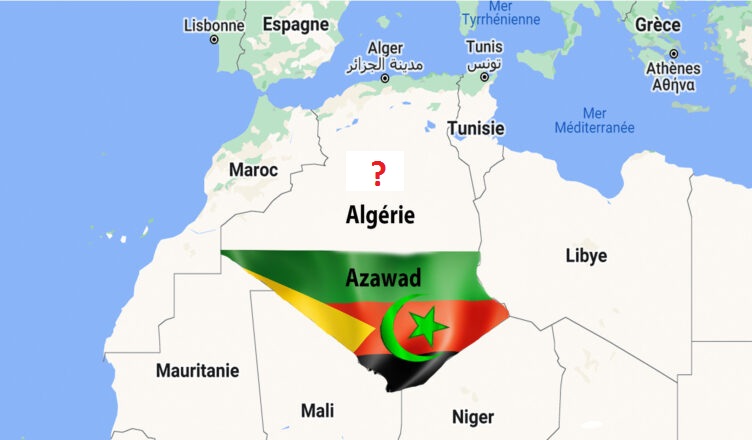The recent drone strikes conducted by the Malian army, which killed eight rebel Tuareg leaders in Tinzaouatine, northern Mali, have heightened regional tensions and revived maneuvers by the Algerian military regime.
Behind this operation, orchestrated by Algerian intelligence services, lies a deep anxiety within the Algerian government, driven by a growing fear of the rise of independence movements in the south, from Mzab to Tamanrasset and the Kabylie region in the north, according to Western observers.
These regions have long been marginalized by the central government, fueling increasing frustrations and stronger demands for autonomy. Algeria, which presents itself as a bastion of stability in North Africa, is increasingly concerned about the rise of separatists within its own territory.
The regime of President Abdelmadjid Tebboune, led by the military junta of General Saïd Chengriha, is particularly fearful of the spillover effects of separatist struggles in Mali, where the Tuaregs have long sought independence for Azawad, a region in northern Mali, and especially in southern Algeria.
In response to this threat, the Algerian regime employs a strategy of information manipulation to prevent the Malian rebellion from inspiring similar movements in the south of the country. While publicly supporting regional stability and positioning itself as a mediator, Algeria closely monitors developments in Mali.
By tacitly supporting the Tuareg separatist groups in Mali, the Algerian regime seeks to subtly control the narrative surrounding these struggles. By amplifying certain stories, especially the atrocities committed by the Malian army, Algeria attempts to justify the rebels’ struggles while avoiding presenting them as a legitimate cause that could encourage separatists in southern Algeria.
The attack in Tinzaouatine, in particular, was portrayed in the media as a brutal crackdown by the Malian army against « leaders » of Azawad. However, this narrative serves a dual purpose: on one hand, it portrays the Malian junta as an authoritarian regime, reinforcing Algeria’s image as a defender of people’s rights, and on the other hand, it downplays the risk that the Tuareg rebels might gain influence and inspire similar uprisings within southern Algeria’s communities.
While taking measures against its own internal separatists, Algeria has long sought to support independence movements in Mali.
The Algerian military regime has never stopped fearing the spread of the separatist phenomenon to the south of the country. The Kabylie rebellions, notably through the Movement for the Autonomy of Kabylie (MAK), continue to pressure the government, and General Saïd Chengriha is well aware that any success of the Tuareg movement could encourage internal uprisings.

